By the time of the Genocide against the Tutsi in 1994, media in the West often portrayed Rwanda as consisting of warring tribes. But this was not so.
Hutu and Tutsi and the smaller Twa minority have lived in Rwanda for many centuries. Hutu were largely agricultural people, Tutsi were mainly cattle herders and the Twa, hunter-gatherers.
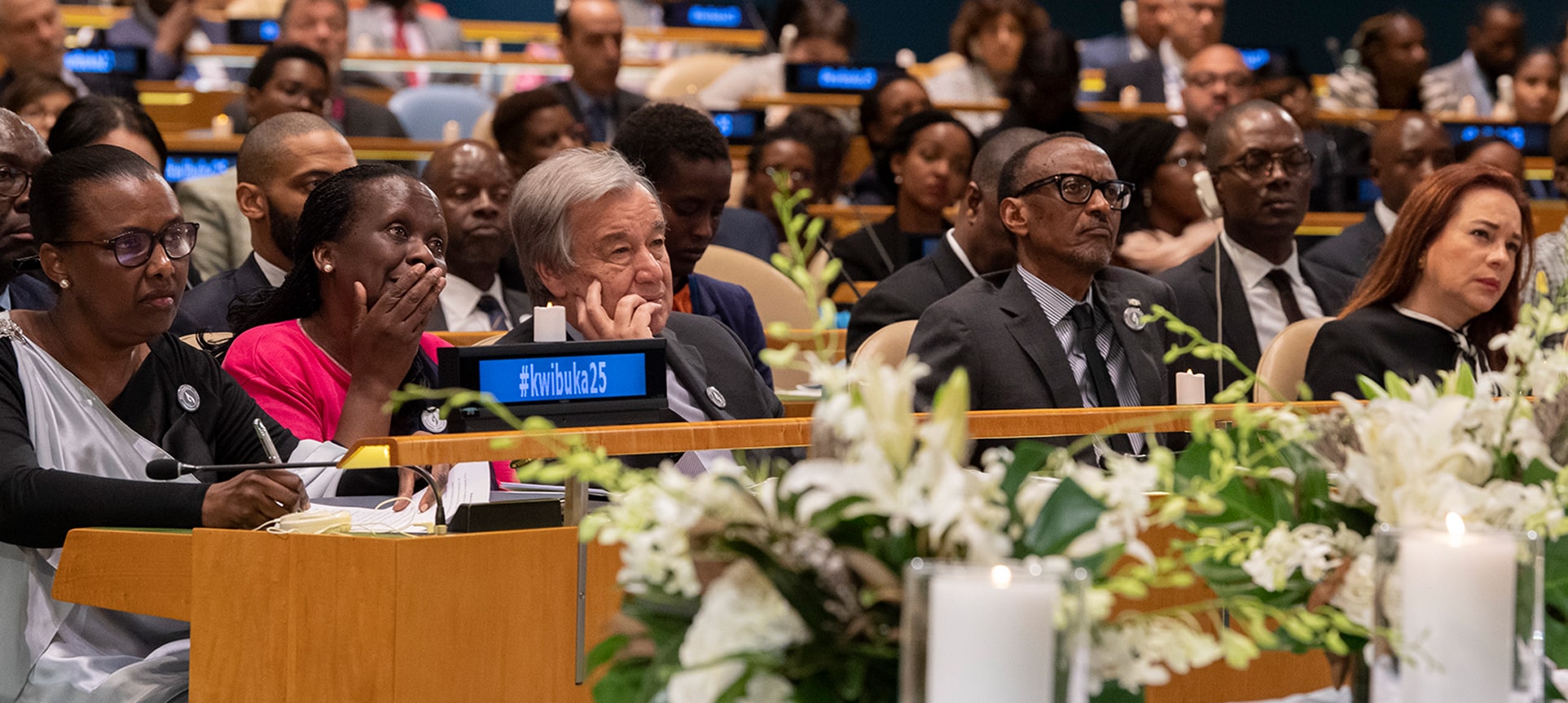
From the ashes of a failed state at the end of the Genocide against the Tutsi, Rwanda has risen to become a united nation and a stable country. A nation which seemed in 1994 to have no future, Rwanda is now aiming to achieve middle income status as a stepping-stone to a fully developed economy.
Achieving the development hat-trick of high economic growth, significant poverty reduction and a decrease in inequality, it is translating economic growth into social progress and better livelihoods for its population.
Many of the leading planners, organisers, perpetrators and financiers are still living openly in Europe, North America and Africa. Some have used their freedom to set up organisations and websites that continue to spread genocidal views. It is important that the world continues to bring such people to account for their crimes in courts of law, however long this process may take.
The International Criminal Tribunal for Rwanda (ICTR) was established in Arusha, Tanzania following the United Nations Security Council resolution N° 955 of 8 November 1994 to try suspects for the crime of genocide against the Tutsi. From its opening in 1995 until December 2015 (20 years), the Court indicted 93 people. It sentenced 62 of the accused and acquitted 14, referring ten to national jurisdictions (including Rwanda) for trial. Two indictees died before judgement, two indictments were withdrawn before trial, and three fugitives were referred to the UN Mechanism for International Criminal Tribunals (MICT).
The Mechanism was established by the UN Security Council on 22 December 2010 and carries out a number of functions of the former Tribunal.
The ICTR made important judgements in establishing rape as a crime of genocide, and sentencing those responsible for the ‘hate radio’ RTLM also for the crime of genocide and incitement to genocide.
Teachers at the Kigali Genocide Memorial’s Community Peace Centre train in the delivery of Peace and Values Education, October 2023.
Recognising that prosperity and peace depend on one another, Rwanda is the first country to build Peace and Values Education into its national schools curriculum.
First developed at the Kigali Genocide Memorial, it helps students cultivate values of critical thinking, empathy and personal responsibility which enable them to play a role in breaking cycles of hate and building real social cohesion.
Traditional dancers at the annual Kwita Izina Gorilla Naming Ceremony, 2023. A celebration of Rwandan culture and the conservation of wildlife which has become a global tourist attraction, the ceremony brings Rwandans together with friends from around the world.
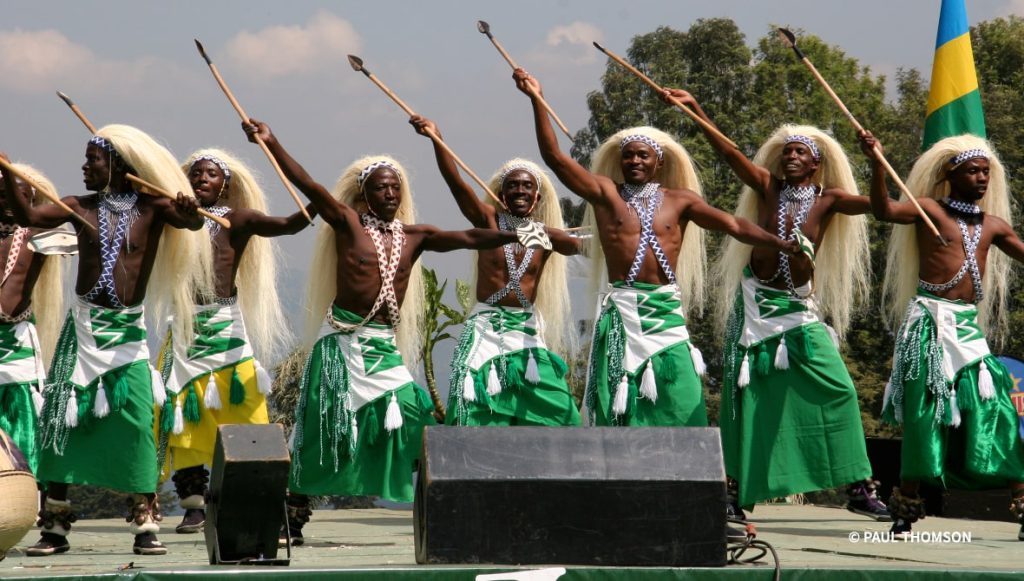
Born 15 September 2021, this baby gorilla was named Kwibohora – ‘Liberation’ – by international football referee Salima Mukansanga to highlight the role liberation has played in conservation as a foundation of sustainable tourism and development.
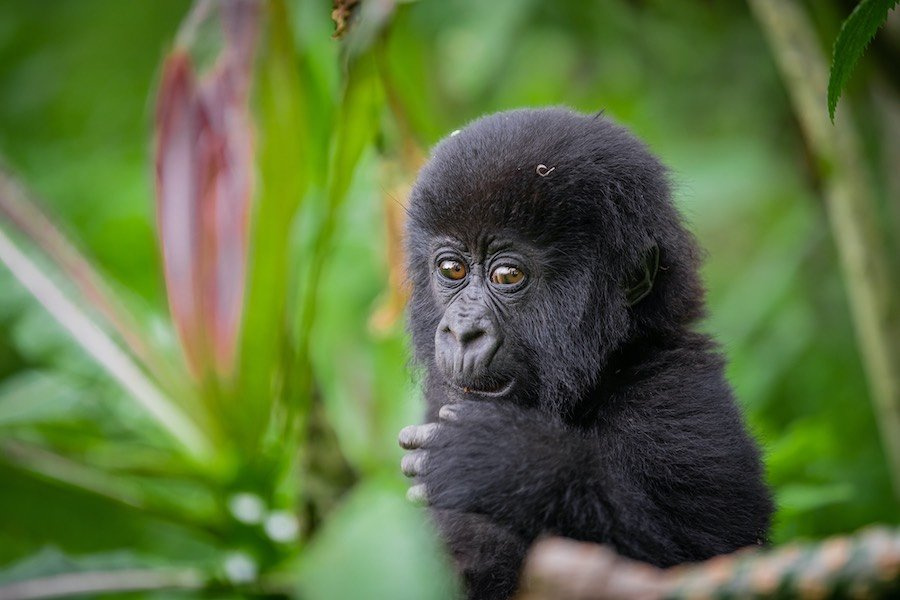
Since 2000, Rwanda has registered growth averaging 8% annually leading to millions being lifted out of poverty and good progress in all development sectors.
Rwanda has integrated the Africa Agenda 2063 and the Sustainable Development Goals (SDGs) into its national development agenda through the Vision 2050, National Strategy for Transformation (NST1, 2017-2024) and related strategies at different levels.
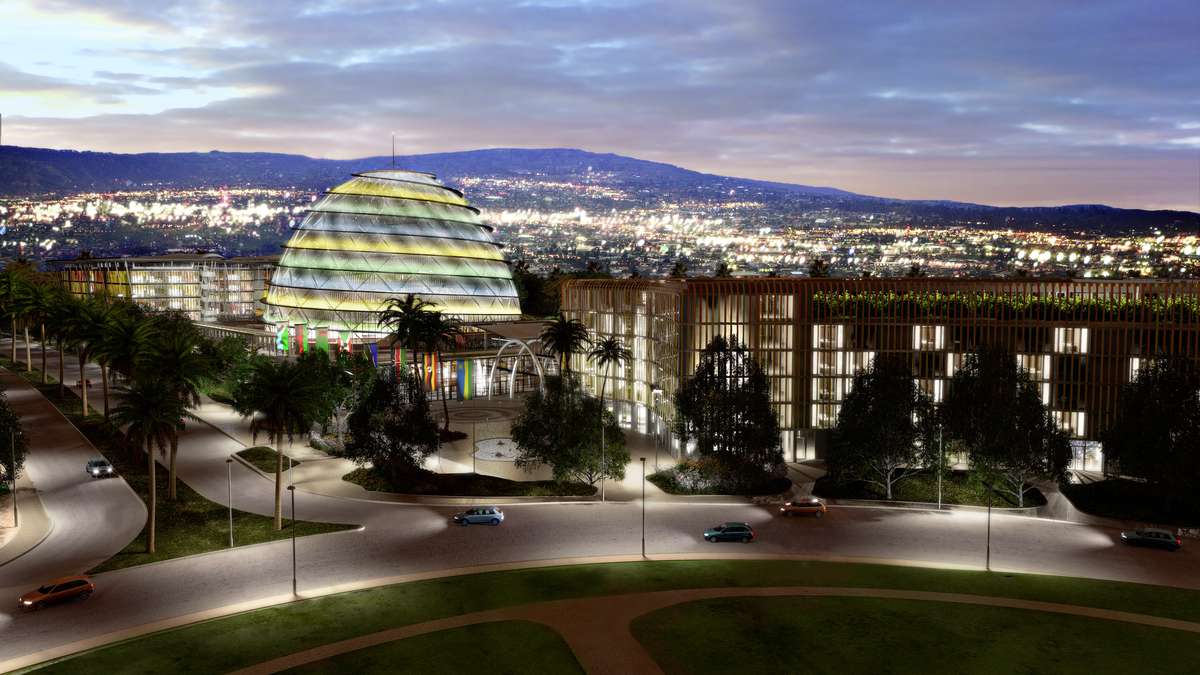
Rwanda’s Vision 2050 articulates the long-term strategic direction for “the Rwanda we want” and the enabling pathways to achieve this ambition. It envisions upper middle income status for the country by 2035, and high income status by 2050. Energized by – but by no means content with – the past two decades of success in reducing poverty, increasing incomes, improving living standards, strengthening good governance, promoting home grown solutions, establishing rule of law, maintaining stability, promoting gender equality and women’s empowerment, peace and security, Rwanda now aspires to transform its economy and modernize the lives of all Rwandans.
Recognizing that achieving these aspirations will require bold and decisive action, Vision 2050 serves as the critical planning and policy blueprint to guide the efforts of all players in Rwanda’s development, including government, private sector, citizens, diaspora, civil society and faith-based organizations, development partners, academia and research institutions, and political parties.
Established in 2009, Umuganda means ‘coming together in common purpose’. Consisting of three hours of community service each month, it involves Rwandans nationwide in improving their neighbourhoods together.
“While the past shall never be forgotten, Rwanda has emerged resolute and ready to build a bright future as a modern, prosperous and united country. This is an inspiration to us all.”
Ursula von der Leyen, European Commission President, Kigali 2023
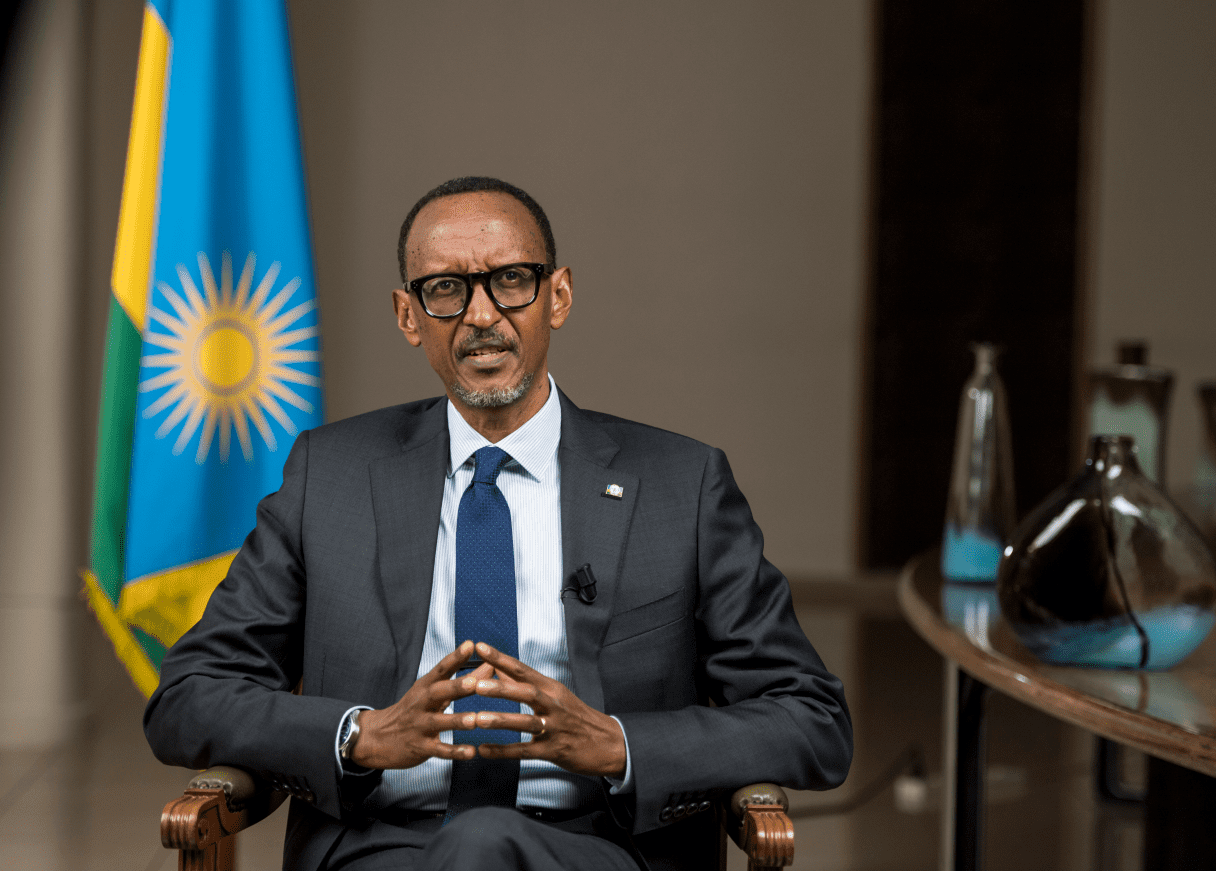
H.E. Paul Kagame, President of the Republic of Rwanda, was appointed in 2016 to lead the African Union institutional reforms process.
He appointed a pan-African Committee of Experts to review and submit proposals for a system of governance for the AU that would ensure the organisation was better-placed to address the challenges facing the continent, with the aim of implementing programmes that have the highest impact on Africa’s growth and development so as to deliver on the vision of Agenda 2063.
Founded in 2018 at an AU summit in Kigali, the AfCFTA is the world’s largest free trade area, bringing together the AU and eight Regional Economic Communities (RECs) in a single market for the continent. Rwanda was the first country to ratify all instruments of the agreement, now signed by 54 of the AU’s 55 member states.
The practical implementation of the AfCFTA has the potential to foster industrialisation, job creation and investment, thus enhancing the competitiveness of Africa in the medium and long term.
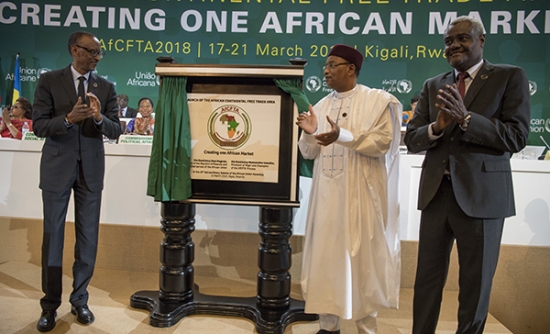
President Kagame, President Mahamadou Issoufou of Niger, AUC Chair Moussa Faki Mahamat, and others participate in a panel discussion at the AfCFTA BusinessForuminKigali,March2018. Photo:PaulKagame,CCBY-NC-ND2.0
Responding to the responsibility to protect civilians at risk in other parts of the World, Rwanda has been at the forefront of international peacekeeping in recent decades. In 2023 Rwanda was globally one of the top four troop- contributing nations to UN peacekeeping missions, and the largest in Africa.
Rwandan peacekeepers in the Central African Republic, 2020. Photo: © MINUSCA
Opening ceremony of CHOGM 2022 at the Kigali Convention Centre.
Photo: Commonwealth Secretariat, CC BY 2.0
In 2022 Rwanda hosted the Commonwealth Heads of Government Meeting (CHOGM) in Kigali, bringing together leaders from over 50 nations with a combined population of 2.5bn people to reinforce multilateral cooperation, explore new opportunities, and tackle common challenges for the well-being of future generations.
Rwanda treasures multilateral cooperation with the United Nations and International Development Agencies. It respects and fulfils its international obligations, engaging constructively with other nations around the world through international organisations including La Francophonie, The Commonwealth and the UN Economic Commission for Africa (UNECA). La Francophonie is an organization which strives to implement political, educational, economic and cultural cooperation between 88 member states united by a common language across five continents. In 2019, the organization elected a Rwandan Secretary General: former Foreign Secretary Louise Mushikiwabo. The practical implementation of the AfCFTA has the potential to foster industrialisation, job creation and investment, thus enhancing the competitiveness of Africa in the medium and long term.
Louise Mushikiwabo, Secretary-General of La Francophone, 28 Feb 2022.
Photo: UN Geneva, CC BY-NC-ND 2.0
The UN Economic Commission for Africa (UNECA) promotes the economic and social development of its member States, fosters intra-regional integration, and promotes international cooperation for Africa’s development.
The Commission is headed by Ambassador Claver Gatete, a Rwandan diplomat and economist who was appointed as its Executive Secretary by UN Secretary General Antonio Guterres in 2023.
Claver Gatete speaking at COP28 in Dubai, 2023 Photo: © United Nations Economic Commission for Africa
Ursula von der Leyen, European Commission President, Kigali 2023